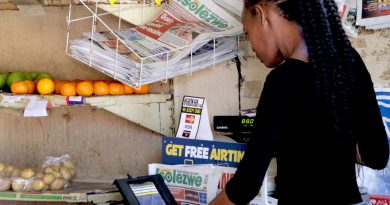Savings month – building your financial resilience
Many South Africans are finding their pockets under pressure due to rising inflation and interest rates, which in turn impact on the cost of living. In tough times like these, financial resilience can help families navigate the challenges they face. But what does financial resilience mean, and how can you improve yours?
Experts define financial resilience as the ability to withstand events that may impact your income or your assets – these can include life events, such as an illness or the loss of your job, or external factors like an economic downturn. Financially resilient people tend to have a financial plan and a good understanding of their income and expenses, along with a support system – a trusted financial adviser, and supportive family or friends – that can help them weather a storm. A savings mindset is one of the most important ways to build your financial resilience.
Avoid debt wherever you can, and if you can’t – make sure you prioritise paying it off
In South Africa, debt is one of the biggest obstacles to families’ financial resilience. According to a report released by the National Credit Regulator in 2021, 10.07-million South Africans had impaired credit records, equating to 38.41% of 26.22-million credit active consumers. According to industry statistics from 2022, a staggering 75% percent of our monthly income is dedicated to servicing debt. This leaves the majority of us with little room to save, as the remaining portion of our income is largely allocated towards meeting basic necessities. With the cost of lending continuing to increase due to rising interest rates, it’s vital to reduce debt and prioritise saving wherever you can.
Reassess your finances and seek expert advice from a qualified financial adviser
Examining regular expenses like pay-television and cell phone contracts presents opportunities to reduce overspending. Many of these contracts can be downscaled to more affordable options. Reassessing the premiums for short- and long-term insurance policies is also advisable. Your financial adviser can provide guidance on cost-efficient insurance products that align with your changing needs.
Once some budget is freed up, it is important to prioritise the repayment of debt with high interest rates. Credit card debt and cash loans are excellent starting points. Consolidating debt into accounts offering the lowest interest rates can also help free up additional funds. These freed resources can then be directed towards long-term savings plans, such as fixed deposits or tax-free savings accounts, which restrict immediate access to funds but provide opportunities for future growth.
Expand your investments
After achieving a disciplined savings routine, consider expanding investments to potentially increase risk and return. Exploring equities and other investment products allows your money to work for you. Understanding the power of compound interest is crucial in this regard. The “Rule of 72” serves as a useful tool for estimating investment growth. This simple formula shows how quickly your money will double at a given return rate. It works by dividing 72 by your annual compound interest rate. For instance, a R50,000 investment with a 12% interest rate would likely double (reaching R100,000) in approximately six years when applying this rule.
By combining a sound financial plan with personal financial discipline, it is possible for you to gradually reduce their reliance on credit, build your financial resilience, and maximise your long-term financial well-being.




